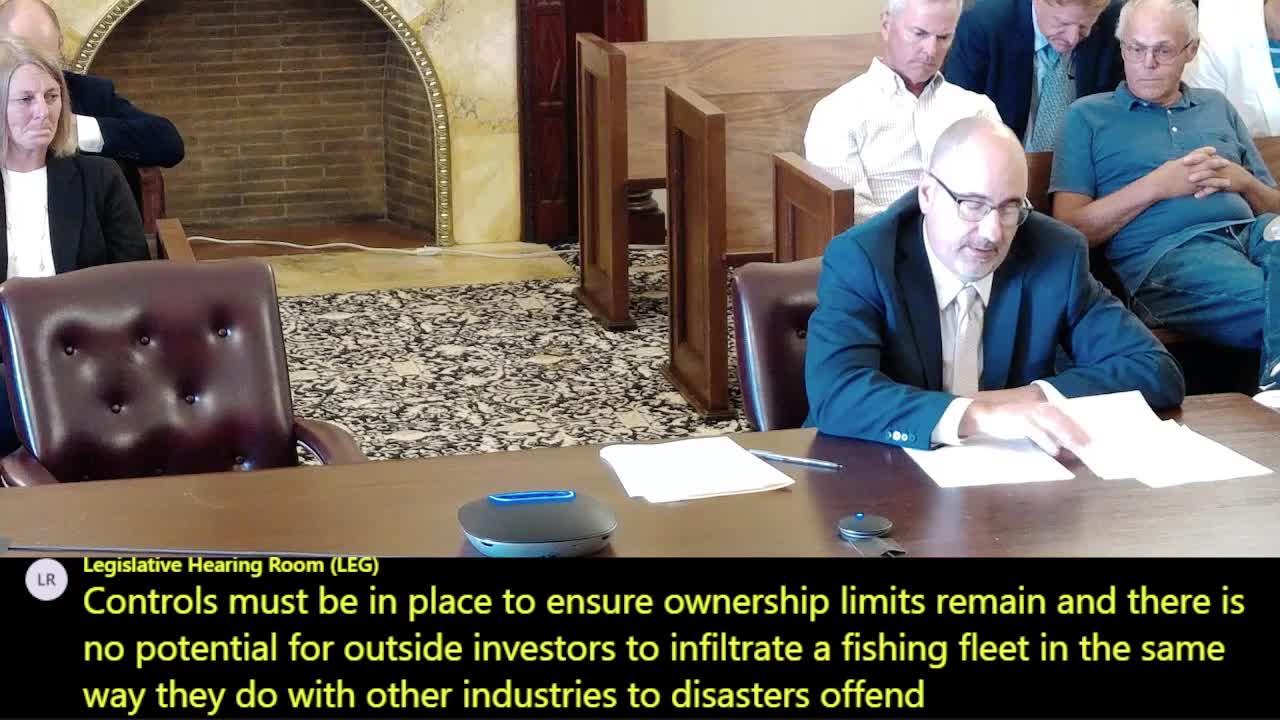New Bedford Committee Advocates For Collaborative Fisheries Management Approach
July 30, 2025 | 2025 Legislature MA, Massachusetts
This article was created by AI summarizing key points discussed. AI makes mistakes, so for full details and context, please refer to the video of the full meeting. Please report any errors so we can fix them. Report an error »

In a recent meeting of the Massachusetts Senate Committee on Intergovernmental Affairs, discussions centered around the future of the fishing industry in New Bedford, highlighting the importance of inclusivity and collaboration among stakeholders. The atmosphere was charged with a sense of urgency as committee members emphasized the need for all voices—ranging from major industry players to individual boat owners—to be heard in shaping policies that affect their livelihoods.
One of the key topics was the proposal for a new program aimed at managing vessel overcapacity in the crowded port. Stakeholders expressed a desire for a solution that would not only protect smaller boat owners and shoreside businesses but also ensure safety and efficient space management. The committee acknowledged the complexity of implementing such a program, stressing that decisions must be made collectively, reflecting the diverse interests within the industry.
As the conversation unfolded, the need for better coordination among various commissions and working groups involved in fisheries management became apparent. The committee proposed consolidating these entities to streamline responsibilities and avoid duplicative efforts. This suggestion resonated with many present, who recognized the potential for a more unified approach to addressing the challenges facing the fishing community.
The meeting also touched on the evolution of public sentiment regarding fishing regulations. Over the past few years, discussions have shifted from opposition to a more constructive dialogue, with stakeholders increasingly willing to engage in finding solutions. The committee plans to hold an open house on September 16, inviting the public to voice concerns and contribute to the ongoing conversation about the future of the fishing industry.
As the meeting concluded, there was a palpable sense of hope and determination among participants. The commitment to preserving the fishing industry for future generations was clear, with leaders expressing their readiness to work collaboratively to navigate the complexities ahead. The path forward may be challenging, but the collective resolve to foster a sustainable and prosperous fishing community in New Bedford remains strong.
One of the key topics was the proposal for a new program aimed at managing vessel overcapacity in the crowded port. Stakeholders expressed a desire for a solution that would not only protect smaller boat owners and shoreside businesses but also ensure safety and efficient space management. The committee acknowledged the complexity of implementing such a program, stressing that decisions must be made collectively, reflecting the diverse interests within the industry.
As the conversation unfolded, the need for better coordination among various commissions and working groups involved in fisheries management became apparent. The committee proposed consolidating these entities to streamline responsibilities and avoid duplicative efforts. This suggestion resonated with many present, who recognized the potential for a more unified approach to addressing the challenges facing the fishing community.
The meeting also touched on the evolution of public sentiment regarding fishing regulations. Over the past few years, discussions have shifted from opposition to a more constructive dialogue, with stakeholders increasingly willing to engage in finding solutions. The committee plans to hold an open house on September 16, inviting the public to voice concerns and contribute to the ongoing conversation about the future of the fishing industry.
As the meeting concluded, there was a palpable sense of hope and determination among participants. The commitment to preserving the fishing industry for future generations was clear, with leaders expressing their readiness to work collaboratively to navigate the complexities ahead. The path forward may be challenging, but the collective resolve to foster a sustainable and prosperous fishing community in New Bedford remains strong.
View full meeting
This article is based on a recent meeting—watch the full video and explore the complete transcript for deeper insights into the discussion.
View full meeting
